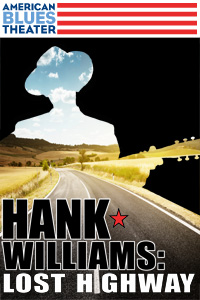HANK WILLIAMS: Lost Highway
Interview with Damon Kiely and Matthew Brumlow
by Kelli Marino, dramaturg
KM: What have you found most interesting in discovering this man/character, and the world in which he lived?
MB: It seems Hank always felt a bit like a backslider, which is why he wrote so many hymns and had such a desperate need to sing those songs in addition to his broken-heart or honky tonk songs. The last thing you would expect to hear in a back room honky tonk somewhere is a group of rowdy people singing a hymn; Hank somehow managed to make that happen. I find that part of his character fascinating—it is that contradiction I am most interested in exploring. Rick Bragg said of Hank’s lyrics and singing “He sang a lot about funerals, and sadness, and grief, and pain…but instead of making you think about all those things and making you sad, it was the opposite. It was as though he pounded out all that agony and grief and sadness thin enough to where you could stand it.”
DK: I think he had a wild spirit on the inside, and he needed a way to get it out. Luckily he did and recorded it.
MB: I love the central roles of Tee-Tot, Mama, and Audrey. Hank didn’t have a daddy growing up, and in many ways I think Tee-Tot was a father to Hank with those blues lessons; he was pivotal to Hank finding his unique voice. I know Rufus Payne stayed with Hank during his career because you can hear it when Hank sings the blues. And if it weren’t for Mama and Audrey, we wouldn’t have Hank.

